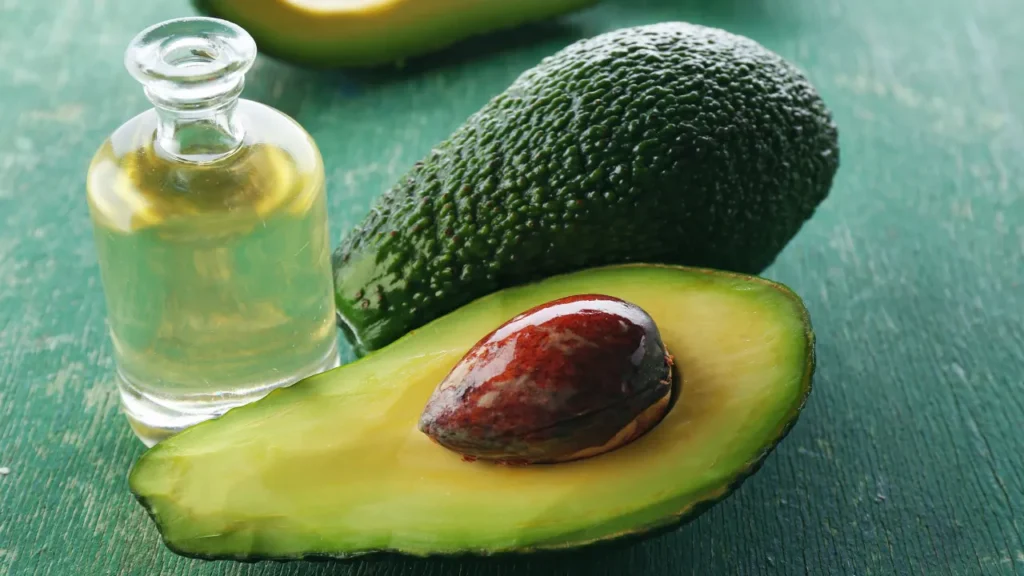Natural products have risen in popularity recently as consumers and academics look for safer and more environmentally friendly substitutes for synthetic chemicals. Among these items, Avocado Sugar Extract (ASE) has drawn interest due to its possible health advantages. ASE is a complex mixture of carbohydrates, phenolic chemicals, and other bioactive ingredients derived from the fruit of the Persea americana. ASE may have different physiological and neurological advantages. In order to provide a thorough analysis of ASE, this page will look at its chemistry, health advantages, recommended dosage, probable side effects, and drug interactions.
You May Also Like:
CBD for Concentration: 3 Epic Benefits that Boost Your Focus
CBD for Concentration: The Productivity Hack for Energy and Focus
AVOCADO SUGAR EXTRACT: Benefits, Dosage, Side Effects, Drug Interactions, And Other Important Information is an original (NootropicsPlanet) article.
Nature of Avocado Sugar Extract
A natural substance called Avocado Sugar Extract (ASE) is made from the Persea americana fruit, also known as the avocado. The extract is a complex blend of phenolic chemicals, bioactive substances, and other carbohydrates. D-mannoheptulose and perseitol, two sugars from the polyol class, are the main carbohydrates in ASE. The phenolic compounds and these carbs jointly contribute significantly to the health-promoting effects of ASE. The flavonoids, phenolic acids, and tannins found in ASE are phenolic substances with antioxidant, anti-inflammatory, and antibacterial effects.
Health Benefits of Avocado Sugar Extract
The interactions between the molecules making up ASE, especially the phenolic and carbohydrate components, have potential to improve your health.
- Blood Sugar Regulation: D-mannoheptulose lowers blood sugar levels by preventing glucose uptake and increasing insulin sensitivity. This impact has been measured both in vitro and in vivo states. This impact indicates that ASE might be advantageous for persons who already have diabetes or are at risk of developing it.
- Antioxidant Activity: The phenolic compounds in ASE display antioxidant activities by scavenging free radicals and lowering oxidative stress. The prevention of chronic conditions, including cardiovascular disease and specific types of cancer, may be aided by this antioxidant activity.
- Anti-inflammatory Effects: By reducing the synthesis of pro-inflammatory cytokines, phenolic compounds from ASE have also shown anti-inflammatory capabilities. Inflammatory diseases may be helped by these effects, including arthritis and inflammatory bowel illness.
- Neuroprotective Properties: According to certain research, the phenolic compounds in ASE may have neuroprotective properties by reducing oxidative stress and neuroinflammation. This shows that ASE may be helpful in the therapeutic treatment of or prevention of neurodegenerative illnesses including Parkinson’s disease and Alzheimer’s disease.

Chemistry of Avocado Sugar Extract
ASE’s complex chemical make-up includes D-mannoheptulose and perseitol, both of which are sugars of the polyol class. These two sugars are the main carbohydrates found in ASE. Seven-carbon sugar D-mannoheptulose has special biological characteristics such inhibiting glucose absorption and insulin sensitivity. Contrarily, perseitol, a six-carbon sugar alcohol with a structure comparable to mannitol, has a significant constituent, avocado nectar.
Along with these carbohydrates, ASE also includes a number of phenolic substances such flavonoids, phenolic acids, and tannins. These substances have anti-inflammatory, antibacterial, and antioxidant effects. The main flavonoids are catechin, epicatechin, quercetin, and kaempferol. The main phenolic acids are gallic, vanillic, and p-hydroxybenzoic acids.
Physiological Mechanisms of Action
The physiological mechanisms of action in ASE are mostly due to D-mannoheptulose, perseitol, and phenolic compounds. These components interact with various physiological processes to produce a range of advantageous health benefits. Here, we discuss the primary mechanisms of action for each of these elements:
D-mannoheptulose: D-mannoheptulose, a seven-carbon sugar, reduces blood sugar levels by inhibiting glucose uptake and enhancing insulin sensitivity, according to studies. D-mannoheptulose competitively inhibits hexokinase, an enzyme that catalyses the phosphorylation of glucose during glycolysis. By inhibiting hexokinase and lowering glucose absorption into cells, D-mannoheptulose reduces blood sugar levels. By activating the insulin receptor and enhancing cell glucose absorption, D-mannoheptulose can also increase insulin sensitivity.
Perseitol: In contrast to D-mannoheptulose, less research exists on the physiological effects of perseitol. Some results suggest that perseitol, like other polyols, may have potential anti-inflammatory and antioxidant effects.

Optimal Dosage of Avocado Sugar Extract
Due to the variety in its composition and the variations in how each person reacts to its components, determining the ideal dosage of ASE is challenging. Animals were given doses ranging from 3 to 15 mg/kg body weight in experiments looking into the effects of D-mannoheptulose on controlling blood sugar. To determine the best dosage for humans, additional research is necessary.
Studies used dosages of ASE between 25 and 100 mg/kg body weight in mice for antioxidant and anti-inflammatory objectives. Once more, human studies are required to establish the ideal treatment regimen and time frame for these health advantages.
Before beginning any supplements, it is crucial for you to speak with a healthcare provider because they may offer individualized recommendations based on your needs and potential contraindications.
Side Effects of Avocado Sugar Extract
When included in a balanced diet and consumed in moderation, ASE is typically regarded as safe. However, some people might encounter adverse effects, just like with any vitamin.
Gastrointestinal problems, including as bloating, gas, and diarrhea, are possible ASE adverse effects. The presence of carbohydrates, notably D-mannoheptulose, which some people may find difficult to digest, is probably to blame for these negative effects.
Additionally, ASE might cause allergic reactions, particularly in people who have a history of sensitivity to avocados or other parts of the extract. An allergic reaction may manifest as breathing problems, a rash, swelling, and itching. If any of these signs appear, stop using ASE right once and seek immediate medical advice.

Potential Substance Interactions with Avocado Sugar Extract
The potential interactions of ASE with other substances are not yet thoroughly studied because it is a relatively new dietary supplement. Based on the understood properties of the constituent molecules of ASE, the following interactions are possible:
- Diabetes Prescription Drugs: Due to D-mannoheptulose’s blood sugar-regulating properties, ASE may interact with diabetes prescription drugs, possibly causing hypoglycemia or low blood sugar. To prevent potential problems, people using diabetes drugs should speak with a healthcare provider before using ASE.
- Anticoagulant and Antiplatelet Drugs: Several phenolic chemicals in ASE, namely flavonoids, may have anticoagulant and antiplatelet characteristics. Theoretically, this could raise the risk of bleeding in people on blood-thinning drugs like aspirin or warfarin. Before using ASE in conjunction with these drugs, we urge caution, and consulting a healthcare expert is advised.
- Antihypertensive Drugs: The flavonoids in ASE may have vasodilatory effects that could lower blood pressure. Theoretically, this interaction could intensify the effects of antihypertensive drugs, resulting in abnormally low blood pressure. Before utilizing ASE, people who are on blood pressure drugs should speak to doctors.
Best Responsible Use
It is crucial that you take into account a number of aspects, including dose, possible side effects, drug interactions, and individual needs, to guarantee the best possible responsible usage of Avocado Sugar Extract (ASE). Here are some suggestions on using ASE responsibly:
- Speak with a healthcare expert: It is essential that you speak with a healthcare provider before beginning any supplements. Based on your particular requirements, medical background, and probable contraindications, they can offer advise that is tailored to you. They can also assist in choosing the best supplements schedule and dosage.
- Begin with a low dose and attentively observe your response: Since the ideal dosage for humans has not yet been standardized, it is advisable that you begin with a low amount and gradually raise it as necessary. By using this strategy, you can reduce the possibility of negative effects and make sure you get the right dose for your needs.
- Recognize possible adverse effects: Although ASE is usually safe, some people may develop side effects such digestive problems or allergic responses. Discontinue use and seek medical advice if you suffer any negative effects.
- Take into account any drug interactions: If you take diabetes medications, anticoagulants, antiplatelets, or antihypertensives, you should be particularly mindful of possible interactions between ASE and other drugs or supplements you may be taking. If you need advice on how to add ASE to your regimen safely, go to a medical professional.
AVOCADO SUGAR EXTRACT:
Conclusion
Avocado Sugar Extract (ASE) comes from a familiar source—avocados. But the sugar that avocados yield has a different nutritional offering than the fruit. Scientific research for the effects of ASE on humans in still in relatively early stages, yet the existing findings are positive and promising. This sugar has anti-inflammatory, antibacterial, and antioxidant properties, which benefit many people with a range of health issues. This particular sugar is also healthy for diabetic people or people at risk for diabetes. Please take caution when finding the right dose for your consumption

References:
- “Avocado (Persea americana Mill.) phenolics, in vitro antioxidant and antimicrobial activities, and inhibition of lipid and protein oxidation in porcine patties.” Retrieved from: https://pubmed.ncbi.nlm.nih.gov/21480593/
- “Avocado Seed: A Comparative Study of Antioxidant Content and Capacity in Protecting Oil Models from Oxidation.” Retrieved from: https://www.ncbi.nlm.nih.gov/pmc/articles/PMC6222478/
Important Note: The information contained in this article is for general informational purposes only, and should not be construed as health or medical advice, nor is it intended to diagnose, prevent, treat, or cure any disease or health condition. Before embarking on any diet, fitness regimen, or program of nutritional supplementation, it is advisable to consult your healthcare professional in order to determine its safety and probable efficacy in terms of your individual state of health.
Regarding Nutritional Supplements Or Other Non-Prescription Health Products: If any nutritional supplements or other non-prescription health products are mentioned in the foregoing article, any claims or statements made about them have not been evaluated by the U.S. Food and Drug Administration, and such nutritional supplements or other health products are not intended to diagnose, treat, cure, or prevent any disease.


